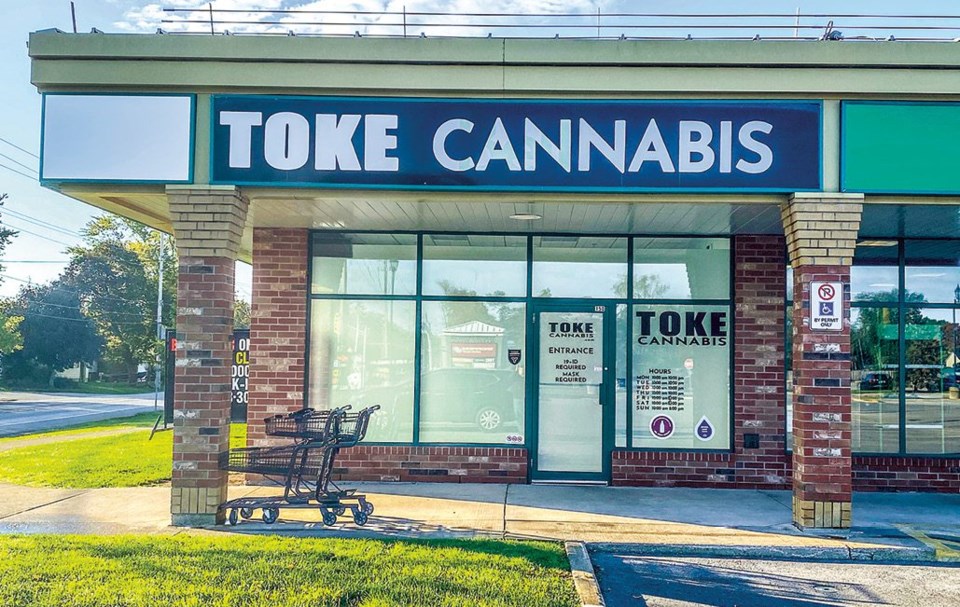But Brock University research suggests retail is safer option
No pot in Pelham continues to be fine as far as Mayor Marvin Junkin is concerned.
In a special Committee of the Whole meeting, held Monday, Jan. 14, 2019, Pelham Town Council supported a motion to opt out of allowing retail cannabis stores in the municipality.
Fast forward almost three years and Junkin stands by council’s decision.
“At the time — and I don’t know what the current feeling is — we heard from the residents that they did not want any retail cannabis stores in the town so we went that way,” Junkin said. “There were one or two business people who wished we had allowed them in, so I guess our feeling then was Welland and St. Catharines aren’t that far away and people can order it online and they bring it to your door. I was happy then, and to be honest with you, I’m still happy we don’t have it in the town.”
Town staff, in a report presented by Director of Community Planning and Development Barbara Wiens, recommended that council opt in to allow retail cannabis in Pelham.
The federal government legalized recreational cannabis use Oct. 17, 2018.
Junkin said he has not heard of a groundswell of support to change the decision.
“I don’t see us changing in the near future,” he said. “There has been nobody banging on the door demanding equal rights or anything like that, not at all.”
Pelham residents don’t have to travel far for a retail cannabis location. A quick Google search revealed 20 stores in St. Catharines, six in Welland and four more in Thorold.
Toke Canada, located at 589 South Pelham St., Welland, and Grand Cannabis, located at Turner’s Corners in Thorold, are the two closest.
Employees at both locations said their stores do not ask customers for their addresses or postal codes. Toke Canada only delivers online orders to residents of Welland.
New research out of Brock University’s Goodman School of Business examines the importance of making legal products accessible to consumers.
Michael Armstrong, Associate Professor of Operations Research and one of Canada’s foremost experts in the area of legalized cannabis sales, has published new research about the relationship between legal cannabis stores and the growth of users and sales.
In his research, which he wrote about in The Conversation Canada, Armstrong found that provinces opening more cannabis stores gained more legal sales, but not necessarily more users.
Armstrong notes several million Canadians live in places that banned licensed shops, such as Mississauga and Surrey, B.C. In the U.S., most municipalities in California opted out of allowing stores after recreational sales began there in 2018, and 71 percent of towns in New Jersey and 90 percent of those in Maine recently did the same.
Politicians may think banning stores is a way to protect residents, but Armstrong’s study suggests “communities will see similar user growth after legalization whether they allow shops or not.”
“Users will increasingly buy legally if local shops open,” he says. “But without such stores, users will keep visiting illicit sources where products might be misrepresented or contaminated. This means community store bans could lead to more crime and health problems rather than less.”
Armstrong says retail opt-outs — by municipalities or by entire nations — risk becoming political cop-outs that hide problems instead of addressing them.
“Cannabis legalization is complex. Canada is still learning from its experiences. Hopefully other countries can learn from them too,” he says.



